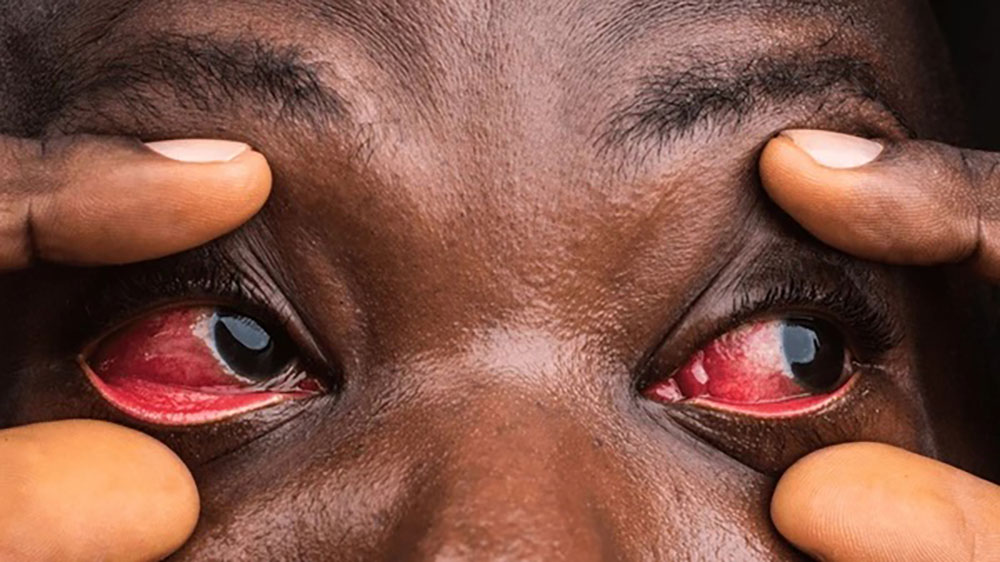Aceng calls for better hygiene as active red eye cases surpass 1,000
Mar 29, 2024
The disease presents itself with red watery eyes. As of March 16, Uganda Prisons Service (UPS) was the worst hit with 1,000 cases.

Aceng calls for better hygiene as active red eye cases surpass 1,000

Dedan Kimathi
Journalist @New Vision
__________
Health minister Dr Jane Ruth Aceng has called for proper hygiene practices following the soaring number of red eye cases in the country.
“It is something that should not scare us, if people could stick to hygiene and keep their faces clean and avoid touching the eyes. But that is a big challenge in many of our areas and because of that, the red eyes have actually spread,” Aceng says.
The minister echoed this on Wednesday, March 27, 2024, while interacting with the Parliament committee on health chaired by Charles Ayume (Koboko Municipality, NRM). The engagement which was also graced by the entity’s Permanent Secretary (PS), Dr Diana Atwiine, bordered on the ministerial policy statement for the 2024/25 Financial Year (FY).
Kampala City Council Authority (KCCA) mid this month announced an outbreak of conjunctivitis, commonly known as red eyes. The disease presents itself with red watery eyes. As of March 16, Uganda Prisons Service (UPS) was the worst hit with 1,000 cases.
Affected units at the time included Kampala Remand prison, upper maximum security prison, Pader prison, Murchison bay prison, Lira main prison, Luzira women prison and Erute prison.
According to medics, it is mainly caused by mechanical irritation, environmental irritants (such as extremely dry air, excess sun exposure), allergic reactions, infection and other medical conditions.
“Now we have red eyes in mid north, Lira, mid central, Kassanda, Kagadi, Kabarole, Kampala of course is the main area, with many areas affected. We have red eyes in Acholi sub-region, even in the prisons, even in Mbarara prison we have red eyes. We have red eyes in north-central, Nakasongola, Jinja, with active cases close to 1183,” Aceng said.
Whereas they have witnessed some recoveries, she pointed out that “cumulative cases are over 3,000”.
Her response was directed at Ayume and Dr George Boka (Obongi county, NRM) who had previously questioned the ministry’s approach in regard to strengthening community health systems.
“Many of these communicable and non-communicable diseases require locals’ high impact interventions. What can be done at family level? To what extent are we scaling up the key family care practices by the village health teams (VHTs),” he said.
Boka added: “Yes, Integrated Community Case Management (ICCM) addresses malaria, but beyond ICCM, what is that you would like the VHTs to deliver?”

No Comment